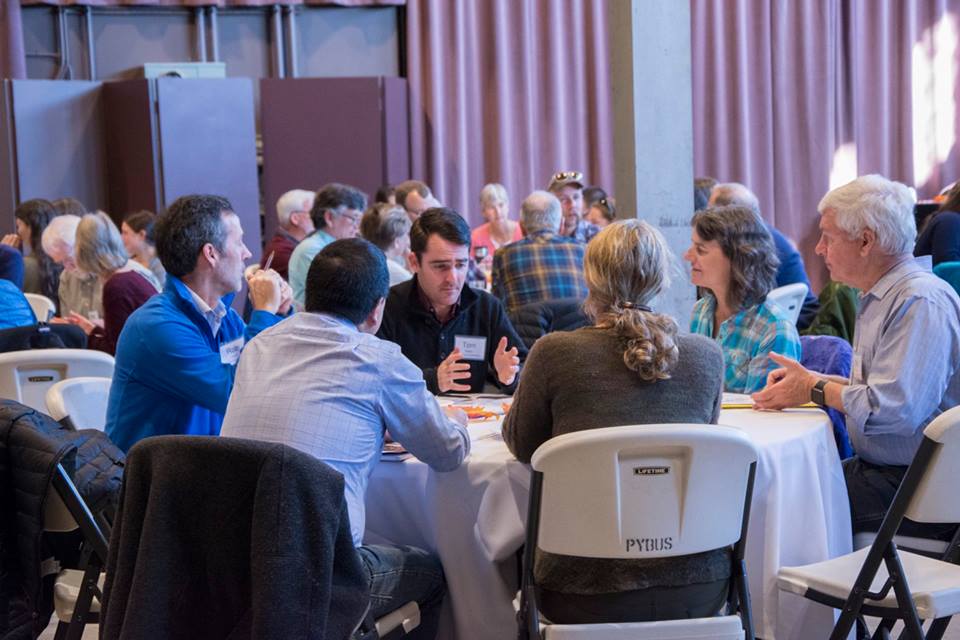
How do land trusts connect more deeply with the communities that we work in – to serve more people, conserve more land, and build support into the future?
Last month, more than 70 participants from thirty-three organizations came together to explore that question at our Community Conservation Conference, co-hosted by the Land Trust Alliance and the Chelan-Douglas Land Trust.
Participants engaged in a day and a half of facilitated discussion, stories from land trust peers, and inspirational presentations.
The conference was held at Pybus Market in Wenatchee, nestled in the gorgeous Wenatchee foothills and surrounded by shops selling delicious local food and gifts – a fitting place to explore land trusts’ connection to our communities.
What is Community Conservation?

Community conservation is an approach to land conservation that authentically and deliberately engages a diverse constituency in shared values, needs and goals. The outcomes of community conservation are as diverse as our communities, and success is dependent on a rich understanding of people, place and history and the relationships between them.
It is also a lens to ‘think outside the box’ of traditional land trust projects, and to also search for projects that satisfy diverse needs within the community.
Part of this work is learning more about your community’s needs. Mary Kiesau of the Methow Valley Conservancy shared the story of her organization’s response to the largest-ever wildfire in Washington, which burned nearly 305,000 acres in 2015.
“As soon as the smoke settled,” Mary said, “we knew we had to do more than just help people help the land”.
The Methow Valley Conservancy went beyond land restoration to also help community members recover their properties, infrastructure, and businesses after the fire, including the launch of a “Spend a Ben” campaign to support local businesses.
“No restoration can be successful without the parallel renewal of the Valley’s human and economic communities,” she explained. The Conservancy learned that its community needs were many and diverse, and through collaboration and partnership it could work for the long-term health and sustainability of Methow Valley.
Sharing Stories
In a discussion facilitated by Rob Aldrich from the Land Trust Alliance, participants shared stories and experiences with community conservation. One of the most profound statements shared was “in the community engagement process, you must be willing to be changed by the conservation.”
We have put together a folder of resources from the Community Conservation Conference, including presentations, contact information for each attendee, notes that capture the group’s thoughts, and handouts from the Land Trust Alliance. And check out some of our photos from the event!
Thank you!
Thank you to all of our attendees, with an extra-special thank you to the Chelan-Douglas Land Trust and the Land Trust Alliance for co-hosting. Finally, thank you to our sponsors: The Icicle Fund, Land Trust Alliance, Henry M. Jackson Foundation, The Nature Conservancy, and Columbia Valley Community Health for supporting the event.
